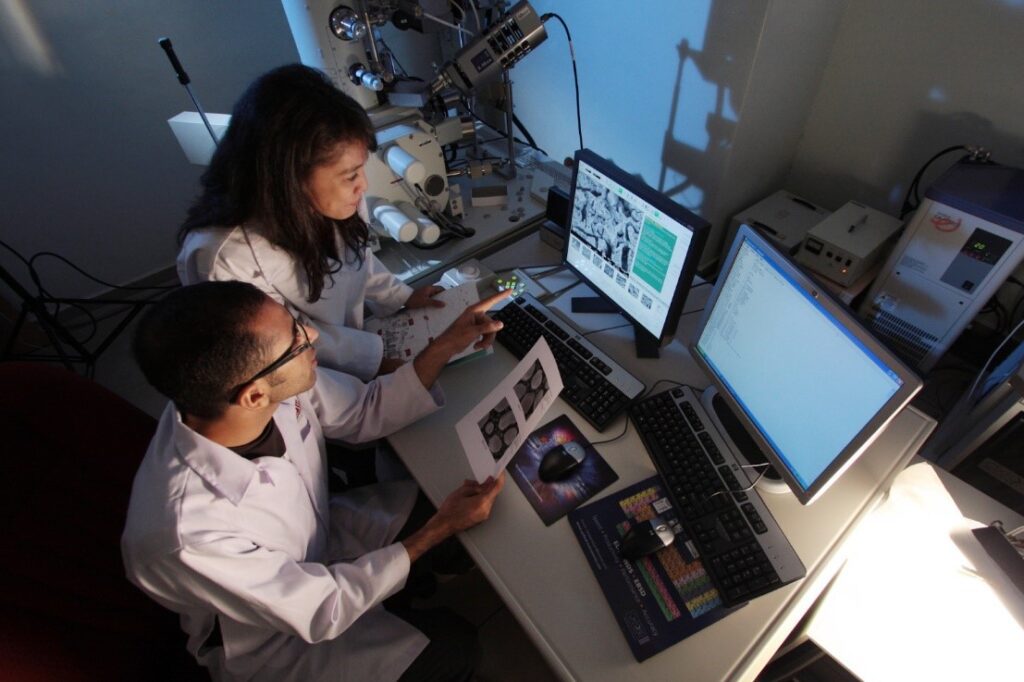Introduction to Biotechnology Engineering and its Scope in India
Biotechnology engineering is a rapidly growing field of study in India. It combines the principles of biology, chemistry, physics, mathematics, engineering, and computer science to develop new technologies and products in medicine, agriculture, and environmental science. Biotechnology engineers work on projects ranging from developing new medicines to understanding how climate change affects our environment. In India, biotechnology engineering has seen an exponential growth in recent years. It is due to the country’s focus on research and development in this sector and increased investment from both sectors.
With the advent of new technologies like genetic engineering, bioinformatics, and nanotechnology, biotechnology engineering has become a highly sought-after career option for many aspiring engineers. Those interested in pursuing a career in biotechnology engineering must possess strong academic qualifications, including a bachelor’s degree in biotechnology or related fields such as life sciences, genetics, or molecular biology. An advanced degree is also highly beneficial for those looking to work.
Additionally, hands-on experience with lab equipment and techniques is essential for those hoping to find employment in this field. In addition to technical knowledge, biotechnology engineers must be able to work on multidisciplinary teams. They should possess excellent communication skills and problem-solving abilities that allow them to think outside the box when tackling complex issues related to their field of study. The job prospects for biotechnology engineers are excellent due to the need for their services across pharmaceuticals, healthcare, agriculture, and more industries.
Education & Training Requirements for a Biotechnology Engineering Career in India
The first step for anyone considering pursuing a biotechnology engineering career in India is to complete a bachelor’s degree program. Most programs require students to complete physics, chemistry, mathematics, biology, and engineering courses. In addition, many programs also offer specialized courses like bioinformatics, molecular biology, bioprocessing, and biochemistry. After completing an undergraduate degree program, aspiring biotechnology engineers should consider enrolling in a master’s degree program. Master’s degree programs typically cover advanced topics related to biotechnology, such as genetic engineering, nanobiotechnology, biomedical engineering, and bioethics.
In addition to formal education requirements for biotechnology engineers in India, gaining practical experience through research positions is also important. These experiences prepare students for the real-world demands of the profession by providing them with hands-on skills and knowledge about the industry. Finally, those seeking a career in biotechnology engineering should consider obtaining professional certifications or licensure from relevant organizations such as the Indian Institute of Biomedical Engineers (IIBE). These credentials help demonstrate expertise in the field and provide opportunities for advancement within the profession.
Undergraduate Degree in Biotechnology Engineering
Pursuing a degree in biotechnology engineering is one of the best paths for those interested in working in India’s biotechnology industry. An undergraduate degree in biotechnology engineering typically requires four years of study. During this time, students learn various core skills, including molecular biology, genetics, and biochemistry. They also gain an understanding of more specific topics, such as bioinformatics and tissue culture. In addition to strong technical knowledge, students develop problem-solving skills and design capabilities to enable them to work with complex biological systems.
Graduate Degree in Biotechnology Engineering
A graduate degree is often necessary for those interested in taking their biotechnology engineering career to the next level. A master’s or doctoral program in biotechnology engineering will give students the skills needed for more complex roles and research opportunities. Many programs also offer specialized courses to focus on specific areas, such as nanobiotechnology or stem cell technology. With a graduate degree, professionals can pursue pharmaceutical development or medical device manufacturing careers.
Professional Skills Needed
Biotechnology engineering is a rapidly growing field requiring technical, scientific, and business skills. For this competitive field, it is essential to understand the educational requirements and the professional skills necessary to become a successful biotechnology engineer. First and foremost, biotechnology engineers need to understand biology and chemistry well. They must possess strong problem-solving skills and be able to think critically about complex issues.
Additionally, they should have an aptitude for mathematics and computer science as these are essential components of the job. In addition to technical knowledge, biotechnology engineers also need to have good communication skills. They must effectively communicate their ideas in both written and verbal form.
Finally, biotechnology engineers need to stay up-to-date on the latest advancements in their field. It means attending conferences or workshops on biotechnology engineering, reading industry publications, and keeping abreast of new technologies that may affect their work. Regarding education requirements, most employers require a bachelor’s degree in biotechnology engineering or a related field such as biology or chemistry. Some employers may accept candidates with associate degrees if they demonstrate exceptional academic performance or relevant experience in the field.
Job Opportunities and Salaries for Biotechnology Engineers
The Indian biotechnology industry is expected to grow at 20-25% annually, creating ample opportunities for biotechnology engineers. Biotechnology engineers can find employment in various industries, such as pharmaceuticals, agriculture, food and beverage processing, environmental protection, and medical research. They are often employed as research scientists or project managers in these industries.
Additionally, biotechnologists may work as teachers or government scientists in the public sector. The salaries for biotechnology engineers vary depending on their experience and the company they work for. Entry-level engineers typically earn between Rs 4-7 lakhs annually, while those with more experience can earn up to Rs 10-15 lakhs annually. Experienced professionals may also be eligible for bonuses or other incentives depending on their performance.
Popular Organizations for Biotechnology Engineers in India
Biotechnology engineering is a rapidly growing field in India, with many organizations offering numerous job opportunities. Some of the most popular organizations for biotechnology engineers in India are:
- Tata Consultancy Services
- Biocon Limited
- Dr. Reddy’s Laboratories
- Reliance Industries Limited
- Lupin Limited
- GlaxoSmithKline Pharmaceuticals Ltd.
- Sun Pharmaceutical Industries Ltd.
- Cipla Limited
- Aurobindo Pharma Limited
Additionally, biotechnologists can work in various industries, such as pharmaceuticals, agriculture, energy, health care, etc.



